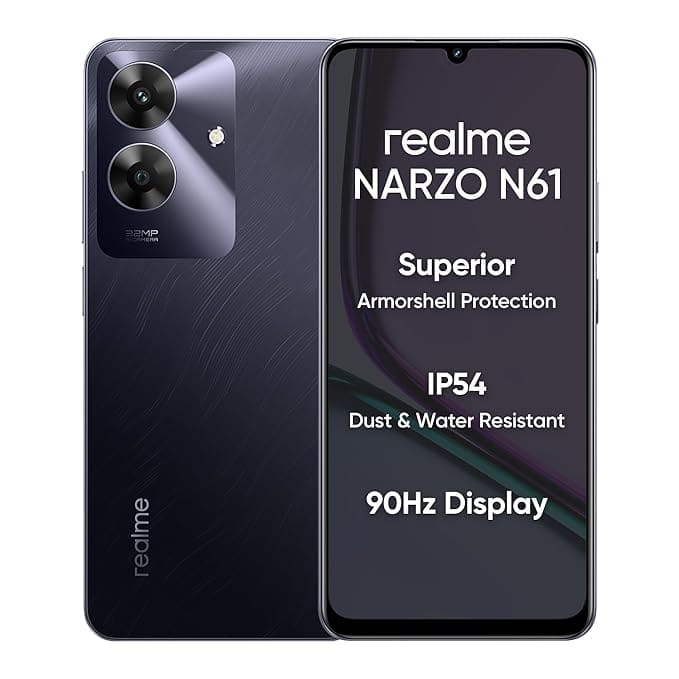English : Term 3 Unit 1 : Prose : Who Owns the Water
WARM UP
Look at the pictures, discuss in pairs, share your answers with the class.
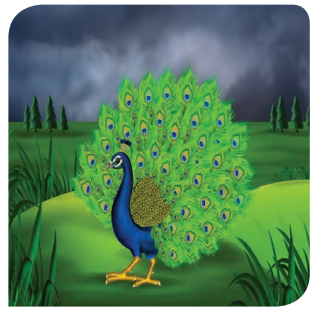
During which season do you see a peacock dance?
I see a peacock dance in rainy season.
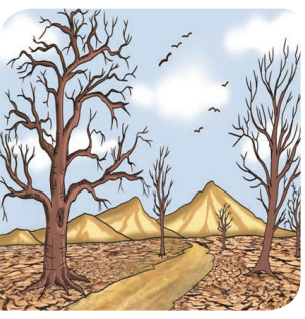
In which season can you see trees without leaves? Name the country where your can find this season.
I can see trees without leaves in autumn season. I can find this season in India.
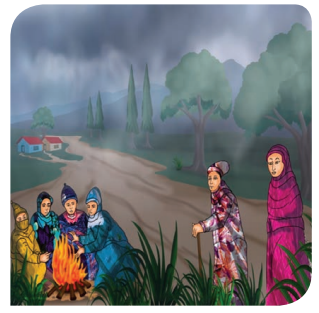
Which season is shown in this picture? What are the people doing?
Winter season is shown in this picture. The people are in woollen clothes. They light fire and stand around to keep themselves warm.
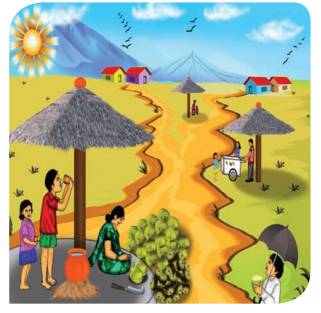
Which season is shown in this picture? How do you know?
Summer season is shown in this picture. People stand in the shade. They protect themselves from the hot sun using umbrellas. They take cool drinks, ice cream and tender coconut water.
Section I
GLOSSARY
outskirts – the outer areas of a city or a town
parched – very dry
desperation – losing hope
untenanted – not occupied
rump – back part of a mammal’s body or the part of the body you use to sit
scrabbled – moved hands and feet around
cosy – comfortable
rumble – a low sound like thunder
put a (✓) for the correct and (×) for the incorrect statements.
1. A tiny bird looked for a place to lay her eggs. ✔
2. The land was wet and green. ×
3. The little bird found a shallow hollow in the ground. ✔
4. The eggs hatched and the babies flew away. ×
5. The pit was comfortable for the wild bear to sleep in. ✔
6. The wild boar got up from its day bed because it was disturbed by another boar. ×
Do you know
WEATHER: The conditions in the atmosphere like rain, wind, or temperature at any time
CLIMATE: The general weather conditions of a place. (e.g.) a wam climate, cold climate
SEASONS: One of the four periods of the year which has its own typical weather conditionsresulting from the earth’s changing positions in its orbit around the sun
Section II
GLOSSARY
sniffed – to breathe in air in a noisy way
snarled – made a deep angry noise
whined – made a high pitched cry
soaked – completely wet
Complete the sentences given below with words/ phrases.
The wild dogs came to the spot to catch the wild boar.
The rains came and poured for three days and three nights.
The whole earth smelled wet and fresh.
The hole in the ground was filled with rain water.
The buffalo wallowed in the muddy water in the hole.
The hole became wide and became a watering hole.
Section III
GLOSSARY
wallowed – to lie and roll in mud
multitude – a large number of people
trampling – crushing
tilled – prepared the land for crops
meagre – small quantity
gratitude – thankful
Answer the following questions in one or two sentences.
1. Why did the farmer have to travel far?
The farmer had to travel far to get water for his thirsty crops.
2. What sight made the farmer thankful?
The sight of the verdant bowl made the farmer thankful.
3. Name the tools the farmer brought out. What did he do with them?
The farmer brought out his pickaxe and spade. He dug the land to transport water from the pond to his field.
4. Why did the crowd gather by the side of the pond?
The crowd gathered by the side of the pond to see it. Each of them thought that he had something to do with that.
5. When did the richest farmer get upset? Why?
The richest farmer got upset when he was not invited to when things took place. Being rich he wanted to be a prominent man in everything.
GLOSSARY
verdant – green with grass
suspiciously – doubtfully
summoned – called fortune – luck
contentment – satisfaction
stuttered – spoke with difficulty
four-square – solidly
READ AND UNDERSTAND
A. Choose the correct answer and write it in the blank.
1. The little bird broadened the hole with her _______
a. beak
b. claws
2. The wild boar settled down scraping the hole into a _________ to have a good sleep.
a. pit
b. hollow
3. The poor farmer’s crop was __________
a. meagre b. surplus
Answer: 1) claws 2) hollow 3) meagre
B. Tick the correct answer.
1. The boar slept until the fading sun told him it was time to get up. What does the phrase until the fading sun mean?
a. until evening
b. until sun fades in colour
2. The farmer was thankful at the sight of the verdant bowl because ___________
a. it was a pond of water
b. he wanted green grass
3. They all stood around the little jewel of blue means ___________
a. They stood around the pond.
b. They stood around the jewel which was blue.
4. The dry earth soaked up the moisture as a hungry puppy laps up milk. It means ____
a. The puppy was very hungry.
b. The dry earth absorbed the water very quickly.
C. Answer the following questions.
1. Pick out the line which tells you about seasons (in Sec II). Which seasons are mentioned?
It rained without stopping for three days and three nights and the dry earth soaked up the moisture, as a hungry puppy laps up milk. Summer season and Rainy seasons are mentioned.
2. What happened to the hole in the ground after the rain?
After the rain the hole was filled with rain water.
3. Identify a sentence and a phrase which tells us that the story took place in summer.
a) In summer months he had to travel far to get water for his thirsty crops. – Sentence
b) thirsty crops – Phrase
VOCABULARY
D. Fill in the blanks with words given in the box to make compound words.
rain | coconut | coat | sail | fire
1. We use a raincoaton a rainy day.
2. The toy sail boat danced on the pond.
3. We must drink tender coconutwater in summer.
4. We can see a rainbow after summer showers.
5. Clean the ashes out of the fireplace
E. Complete the following using their group names.
1. A pack of wolves went hunting in the forest.
2. She bought a new pair of shoes for her birthday.
3. A shoal of fish swam past our boat.
4. A swarm of bees had settled on a mango tree.
5. I ate a bunch of grapes.
LANGUAGE CHECK POINT
Incorrect: There is a table besides the bed.
Correct: There is a table beside the bed.
Note: beside means next to/at the side of;, besides means in addition to
Incorrect: Everyone played games accept Kathir.
Correct: Everyone played games except Kathir.
Note: accept means to receive;, except means to leave out
Incorrect: I see T.V news regularly.
Correct: I watch T.V . news regularly.
Note: watch is to look at something with a purpose;, see is to just look at something in front of us
LISTENING
F. Listen to the weather report. Read the questions given below, then listen to the weather report again and fill in the blanks.
Now stay tuned for weather report.
This is weather forecast from news channel 7. We could not ask for a better day for the first day spring Right now it is 15 degrees and clear we are expecting the blue skies though out the day. Though there is only a 10 % of showers. This good weather can’t last forever. It is raining cats and dogs up North. So we should see rain by morning. Don’t forget your umbrella tomorrow.
1. Which season does the weather report show? Spring
2. What kind of a day is it? clear day
3. What is the temperature stated in the report? 15 degrees
4. Tomorrow it may probably rain
5. The weather report suggests to use umbrellas
SPEAKING
G. Imagine that you and your friend have decided to spent a day together in your house. You have planned your schedule from morning till night. Discuss in pairs and speak about it in the class. You can start like this:
I like to go for a walk but my friend wants to work out in the gym.
PICTO GRAMMAR

Left: He ran fast but he missed the train.
Right: It rained heavily but the match continued.

Left: Rani went to the market and bought vegetables.
Right: He is sick so he is in hospital.
A conjunction is a word that joins two words or sentences.
USE GRAMMAR
H. Fill in the blanks with suitable linking words or conjunctions.
1. Our team played well and won the game. ( but, because, and)
2. She slipped badly but she did not hurt herself. ( but, and, or)
3. The box was heavy so he could not lift it. ( so, because, and)
4. Rani was late to school because she misssed the bus. ( because, so, and)
5. You can use a pen or a pencil for writing. ( but, and, or)
I. Join the sentence of Column Awith B using the words give in the box.
A / B
The clouds moved away – he helped Velu in time. And
Velu thanked his friend – the sun came out. but
It rained heavily – you wil get choked. or
Eat slowly – the match continued. because
Answer:
1. The clouds moved away and the sun came out.
2. Velu thanked his friend because he helped Velu in time.
3. It rained heavily but the match continued.
4. Eat slowly or you will get choked.
WRITING
J. Write a short paragraph on ‘ summer’ using the hints given.
you can begin like this
live in hennai. The weather is…
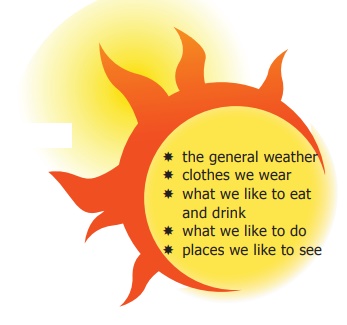
I live in Chennai. The weather is hot because it is summer season. We wear cotton clothes because cotton absorbs sweat. I like to eat curd rice with mango pickles. I like to drink buttermilk. At times I drink tender coconut water. In summer we play outdoor games like cricket. I like to go to the beach in the evening. I enjoy the cool sea breeze.
CREATIVE WRITING
K. Tress can help you recognise seasons. How do the trees look different in each season? Write a short paragraph with the clues given below.
Summer – Trees stretch their leafy branches towards the sun.
Spring – Branches are full of new green leaves.
Rain – Trees absorb water and look green.
Autumn – Trees shed their leaves.
In summer it is hot everywhere. The trees stretch their leafy branches towards the sun. Spring is a pleasant season. The branches are full of new green leaves. In rainy season the trees absorb water and they look green. In autumn many trees shed their leaves. The branches look bare.














